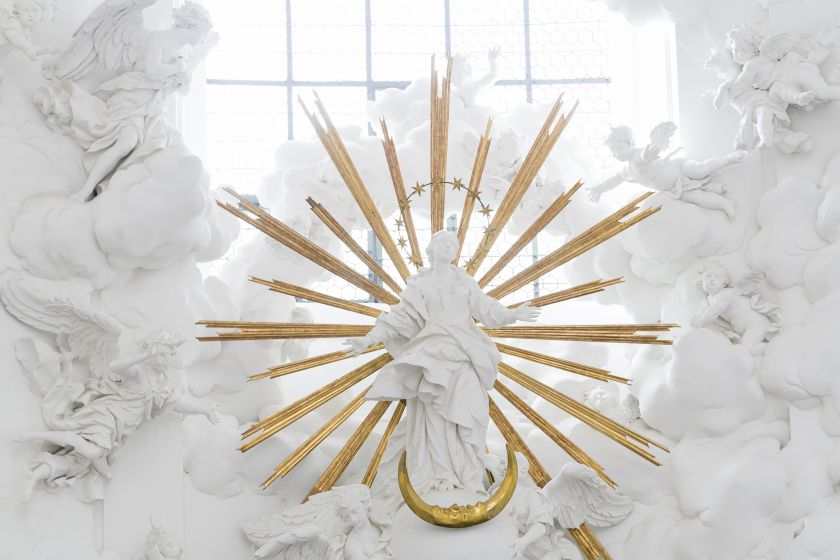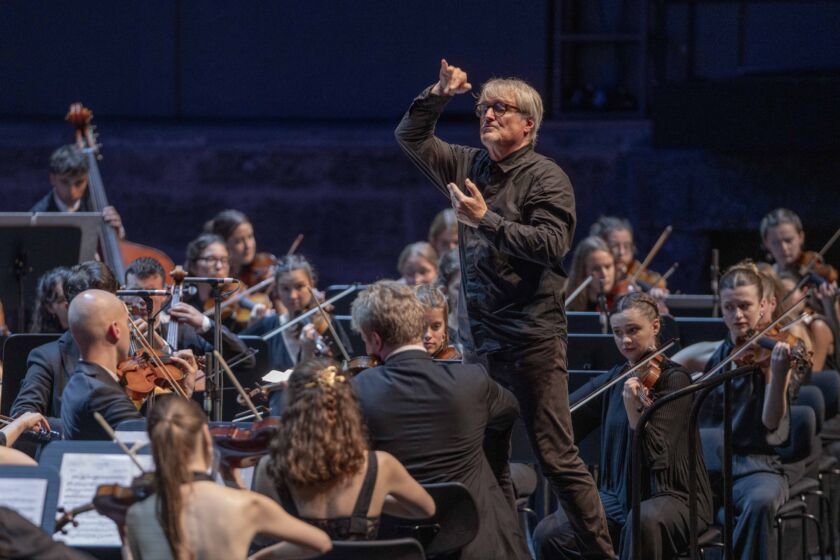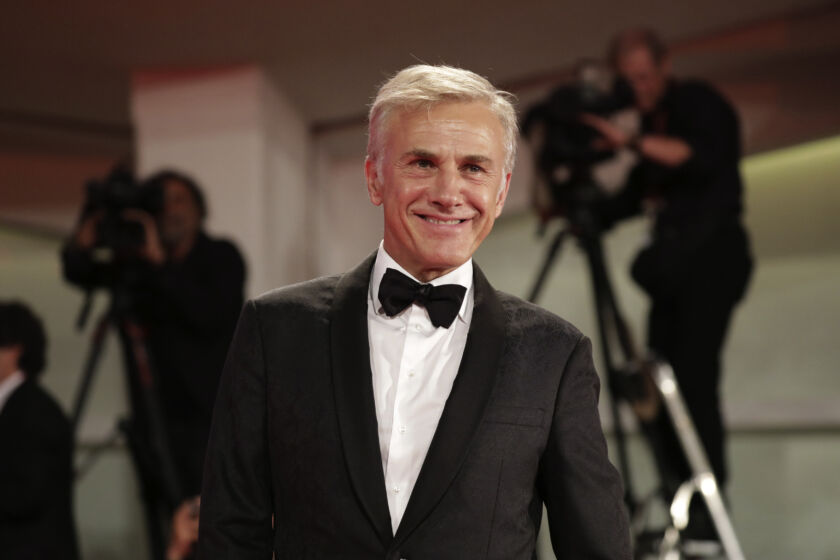Ouverture Spirituelle · Fatum
Whether as a higher power determining entire lives or as a sudden event altering everything – the opening concert series of this year’s Salzburg Festival focuses on fate as a motivation of artistic creativity. “Fatum” resounds in prophecies and fateful stories, runs through musical settings of the passion story and evokes dark tones composed in dark times. While much ends in catastrophe, fate sometimes also has positive endings in store.


Was it fate? Or perhaps a banal and deadly combination of negligence and incompetence? The fact is that in 1816, the incapable captain and high-ranking officials saved themselves after the frigate Méduse had run into distress off the coast of West Africa. They had forced approximately 150 people onto a raft that was in no way seaworthy, abandoning them to their fate. Only 15 of them survived incredibly gruesome circumstances. Théodore Géricault’s famous painting Le Radeau de la Méduse inspired Hans Werner Henze’s oratorio Das Floß der Medusa: in it, Henze and his librettist Ernst Schnabel illuminated the tragedy of a humanitarian scandal from the distant past before the backdrop of the student protests and political activism of the younger generation. The world premiere in Hamburg in 1968 promptly drowned in an absurd tempest of protests and police activity – even though Henze had created sensitive, gripping music for all this suffering. A narrator relates the events: Charon, the ferryman of the dead in the underworld. Ingo Metzmacher conducts the ORF Radio Symphony Orchestra Vienna, the choruses of the Bavarian Radio (BR) and West German Radio (WDR), as well as the Salzburger Festspiele und Theater Kinderchor, all joining forces at the Felsenreitschule. Jakob Diehl, Georg Nigl and Kathrin Zukowski sing the solo roles (18 July).
Was it Macbeth’s belief in the witches’ prophecies that enabled his rise, and his downfall? “A spot … another spot,” his Lady sings – in long notes which fray characteristically, ending in minimal figures; in the orchestra, spooky echoes hover above dark roaring, wafting behind the vocal lines. In 2002, Salvatore Sciarrino, the master of psychologizing sounds on the verge of nothingness, who made deep impressions on Salzburg’s audiences several times, crated a musical theatre version based on Shakespeare: souls weighed down by guilt whisper, hesitate, worry, lament from the abyss. Sciarrino’s cantilenas seem like flakes or splinters hewn from the block of traditional vocalism. Fragmented, curled, irregular, they demand the utmost precision for their execution. The hand-picked soloists joining Klangforum Wien under Vimbayi Kaziboni and the vocal ensemble Cantando Admont on 25 July guarantee such precision.

The legend of Oedipus recounts the impossibility of avoiding predetermined fate, even if one does everything humanly possible to prevent it: Oedipus kills his father and marries his mother unknowingly; weighed down by a curse, he becomes entangled in guilt without meaning to – an ancient, archaic notion, not one of Enlightenment and modern jurisprudence. Igor Stravinsky envisioned his “opera-oratorio” Oedipus Rex (1927) as a monumental work that would be removed from daily life by its Latin text, almost like the ritual of a cult. A narrator, none lesser than Christoph Waltz in Salzburg, conveys the action to the audience in German. Allan Clayton sings the role of the hapless title hero; Lorenzo Viotti conducts the Vienna Philharmonic and the Wiener Singverein at the Großes Festspielhaus (27/28 July).
Because Troy must fall and Cassandra is cursed, her calls of warning go unheeded – also in Michael Jarrell’s monodrama Kassandra (1994), a setting of Christa Wolf’s eponymous novel, in which the writer implicitly equates the Trojan War with the political situation in the GDR and the tensions of the Cold War. Dagmar Manzel as narrator and Ensemble Modern under Bas Wiegers emphasize the frightening topicality of this subject (23 July, Mozarteum Foundation, Main Auditorium).
Many other prophecies by Sybils and seers meet with deaf ears as well. Cordula Bürgi and the vocal ensemble Cantando Admont, for example, render the fragile beauty and distant memories of Luigi Nono’s Io, frammento dal Prometeo (1981), in which a memorable line is: “PLACA questa sventura di vivere” – “PLACATE this misery of living”.
Walter Weidringer
First published in the Festival insert of Salzburger Nachrichten
